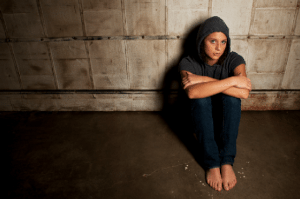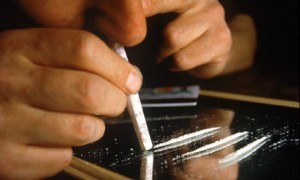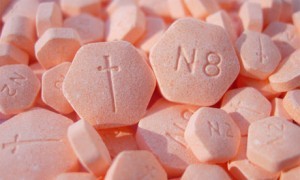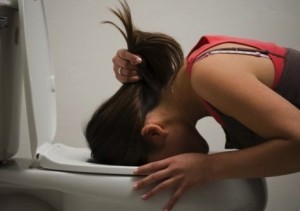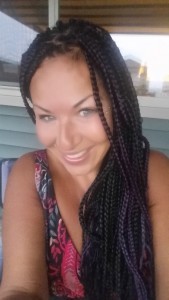My Mom was a Drug Addict | Until I Told Her This…
How I Helped My Mom Beat Her Prescription Drug Addiction
I was 23 years old, I had just finished a degree program in University, I had my whole future ahead of me and my Mom was a drug addict.
It wasn’t always like this. My sister and I had a great upbringing. Mom was always there. She gave us lots of love and attention. She made our lunches and came to our games. Growing up, Mom taught us how to cook and paint and be an empowered woman.
She worked at a PR firm and everyone respected her. She made great money and provided a great home for us.
I never thought in a million years that my Mom was a drug addict nor would I ever categorize my Mom as a drug addict or someone who would associate with drug addicts.
I remember once, at a young age, driving through Main and Hastings area of Vancouver, a well known area for drug addiction, and I remember my Mom making sure to lock the doors, as if the big bad scary drug addicts would carjack us and take our money, or worse.
Then when I was 18, I remember my Dad, coming home, all frantic. Mom was in a car accident.
We were all terrified. We got to the hospital, expecting the worse, and there she was, in a hospital bed, in pretty good spirits, a little scratched and banged up, laughing with the Nurse, on duty.
Phew, it wasn’t that bad. No broken bones. No serious injuries. Little did I know, that this was just the beginning.
The Doctor sent her home with some prescription pain killers to dull the soft tissue pain, she was sure to endure.
I won’t glamorize or dramatize the next 5 years of her prescription drug addiction hell but she soon become a serious drug addict, hell bent on getting her pain killers, no matter what.
She went from Super Mom to a Super Drug Addicted Zombie, and there was nothing we could do about it.
The problem with prescription drug addiction, is that the user can easily minimize the problem and justify it because they have a bottle, with a label, prescribed by a Doctor, and bought from a Pharmacy. It crystallizes the denial of being a drug addict 100x that of someone in a back alley, sticking needles in their arms. The reality is there is no difference between the two.
As Russel Brand, the comedian, activist, and once self proclaimed junkie says: “The priority of any drug addict, is to anesthetize the pain of living to ease the passage of the day with some purchased relief.”
It didn’t matter if my Mom had a roof over her head, food on the table, and a support circle still willing to do whatever it took to help her recover from her prescription drug addiction and the street addict did not. They were both the same.
What you do need to know is during those horrendous 5 years of my Mom’s prescription drug addiction we fought with her. We all did, the entire family. But she wouldn’t listen. It didn’t matter what we said, it always led to an argument.
We all showed her how she was killing herself, destroying everything she had built but she would not listen. There was no way to get through to her.
I spoke with with some friends who were in NA, and they all told me that she needed to hit her bottom and that there was nothing I could do but be there for her, for when she was ready.
“Bullshit! Fuck that! My Mom was going to die, as I sat by and watched her control her drug addiction and eventual overdose and death.”
We had tried as a family to do interventions on her. We had all watched the TV Show; Intervention and we all thought we new exactly what to do. They made it look super easy on TV but she wouldn’t have any of it.
She started to sound like a reincarnation of Amy Winehouse; They tried to make me go to rehab but I said, ‘No, no, no.’;
I was about to give up. My mom was a drug addict. Then I started calling around, spoke with drug rehab after drug rehab, and every addiction treatment centre said the same thing; You need to hire an Interventionist.
My Dad was resistant but then I spoke with a wonderful man. An amazing Interventionist, and he told us three things I needed to hear.
- He told me that my Dad was not resistant but rather hurt and hopeless.
- That drug addicts are master manipulators and you can’t do an intervention on your own because she knows exactly how to manipulate us.
- She needs to hear how much pain she has caused you.
Bingo. Number 3 really struck a chord with me. He was right. I spent years, we all did, telling her how her prescription drug addiction was killing her and tried to get her to closely look at all the damage she was causing on her life but I never really shared with her, the pain that she was causing me.
My Mom was a Drug Addict, until I Told Her This…
The only way through to her, was an emotional connection, my Interventionist told me. The only way that the addiction identity would drop its defences was if I connected with her on an emotional level. But, how was I going to do that?
So I told her that I loved her very much, I recalled good times growing up and what an amazing mom she was and then I told her how she had hurt me. That every time she popped those pills into her mouth she was popping them into mine and that it’s one thing to kill yourself but she was killing me. She was taking the life of her child, and that was it. Something happened.
It was as if something lifted, shifted, and the crusty, defensive, angry, drug addict in denial in front of me began to weep and then the weeping turned into sobbing and she reached for me and I held her as she did for me when I was a child. This time, her head was on my chest and I patted her head and told her it was going to be okay. She went to an addiction treatment centre the very next day.
That was 5 years ago. Today, she has recovered from her prescription drug addiction, she is healthy and well and my mom is no longer a drug addict.
If your Mom is a drug addict, my advice, other than to hire an Interventionist, if she is in serious denial, is to find a way to connect with her emotionally. Shift away from blame or anger or how her addiction is harming her and focus on your own pain and share with her your hurt until she feels it and once she does, she will be able to recover.
My Mom was a Drug Addict, Until I Told Her This… ©

